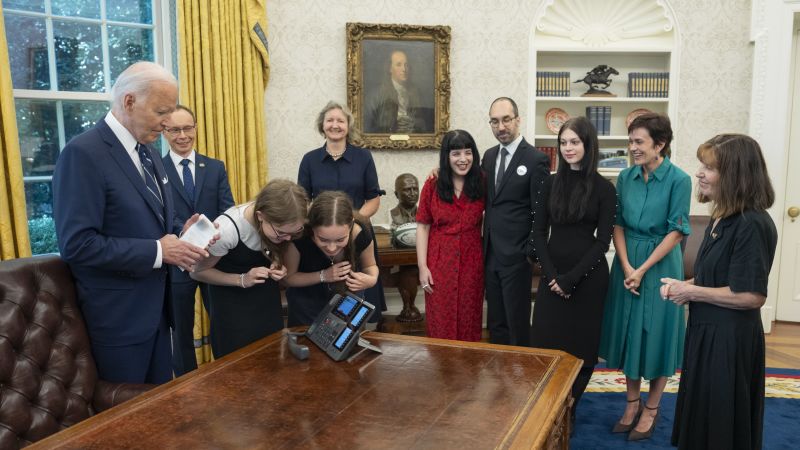In late June, CIA officials met with Russian intelligence officers to propose a prisoner swap involving exchanging Vadim Krasikov, a Russian assassin, for two Americans imprisoned in Russia on baseless charges of espionage. After months of negotiations, the Russian officials agreed to the deal in principle, leading to a historic prisoner exchange involving 24 prisoners and seven countries. The release of the American prisoners, including former US Marine Paul Whelan and Wall Street Journal reporter Evan Gershkovich, marked the end of a long ordeal and brought home other individuals, including Russian-American journalist Alsu Kurmasheva and Putin critic Vladimir Kara-Murza.
The Biden administration put a significant amount of effort into the negotiations for the prisoner exchange, facing unexpected hurdles along the way. The key to the deal was persuading German Chancellor Olaf Scholz to release Krasikov, who was seen as having close ties to Russian President Vladimir Putin. Despite multiple rejected offers and the unexpected arrest of Gershkovich for espionage in 2023, the Russians eventually sought a high-value exchange, leading to the negotiations for the prisoner swap.
The US government had to convince Germany to agree to release Krasikov before bringing the proposal to the Russian side. Secretary of State Antony Blinken and National Security Advisor Jake Sullivan worked closely with German officials to secure the release of Krasikov, with President Biden personally raising the issue with Chancellor Scholz. The death of Russian dissident Alexey Navalny in February 2024 added a complication to the negotiations, but Vice President Kamala Harris pressed Scholz to facilitate Krasikov’s release during a private meeting at the Munich Security Conference.
Following the death of Navalny, the negotiations faced uncertainty, but Sullivan continued to push for a viable deal for Germany. President Biden sent a letter to Scholz, resulting in the German government agreeing to release Krasikov in early June. The successful inclusion of other Russian political prisoners, including Kara-Murza, in the deal helped secure Germany’s agreement. The US also worked with other countries, such as Slovenia, to secure the release of Russian nationals in their custody as part of the prisoner swap.
Overall, the prisoner exchange was the culmination of years of negotiations and diplomatic efforts involving multiple countries. The release of the American prisoners, as well as other individuals, marked a significant diplomatic achievement for the Biden administration. The complex and intricate negotiations involved navigating various challenges and obstacles, ultimately leading to the largest prisoner exchange between the US and Russia since the Cold War. President Biden hailed the deal as a testament to diplomacy and friendship, highlighting the efforts of multiple countries to make it possible.













